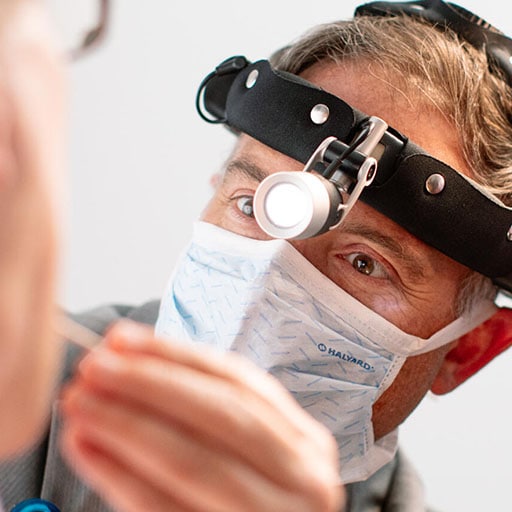Checking out the Area of Otolaryngology: What to Anticipate When You Consult an ENT
Otolaryngology, generally described as ENT, encompasses the diagnosis and treatment of nose, throat, and ear disorders. For those experiencing associated problems, seeking advice from an ENT specialist can supply clarity and relief. Recognizing what to expect throughout such assessments is necessary for reliable communication and care. This introduction will certainly detail key facets of the ENT experience, including usual reasons for brows through and the processes entailed in medical diagnosis and treatment.

Comprehending Otolaryngology: A Summary
Otolaryngology, often described as ENT (Nose, throat, and ear) medication, is a specialized branch of medicine that concentrates on the diagnosis and therapy of problems affecting these critical locations of the body. This field incorporates a wide variety of problems, consisting of those pertaining to hearing, balance, breathing function, and speech. Otolaryngologists are educated to take care of both clinical and surgical treatments, using advanced techniques and technologies. Their know-how expands beyond traditional disorders, addressing concerns such as allergies, sinus infections, and hearing loss. Additionally, they play a critical duty in the management of head and neck cancers, giving detailed treatment tailored to individual patient demands. Overall, otolaryngology continues to be necessary for preserving health and lifestyle in affected individuals.
Common Factors to See an ENT Expert
Many people look for the expertise of an ENT expert for a variety of factors, showing the varied nature of problems that impact the nose, ear, and throat. Common problems include persistent sinusitis, which often leads to persistent nasal blockage and facial discomfort. Allergic reactions and their linked signs, such as itching and sneezing, likewise motivate brows through to these experts (Voice). Hearing loss, whether unexpected or progressive, is another significant factor for assessment. Furthermore, individuals might seek evaluation for throat problems, including relentless hoarseness or swallowing problems. Rest apnea, identified by disrupted breathing throughout sleep, is frequently resolved by ENT professionals. Each of these conditions highlights the relevance of specialized care in handling complicated ENT-related wellness issues
Getting ready for Your ENT Visit
When preparing for an ENT appointment, it is important to collect pertinent details and consider any particular concerns. Patients should put together a comprehensive case history, consisting of previous ear, nose, or throat concerns, surgeries, and current medicines. Recording signs and symptoms-- such as period, extent, and regularity-- can provide valuable understandings for the ENT specialist. In addition, individuals ought to prepare a checklist of questions they want to ask, guaranteeing that all issues are attended to during the go to. Bringing along any type of appropriate clinical records or test results can even more help the ENT in understanding the individual's condition. Clients ought to validate their visit information, consisting of day, area, and time, to reduce any kind of final confusion. Proper preparation can boost the effectiveness of the consultation and lead to better end results.
What to Anticipate Throughout the Examination
As the appointment begins, the patient can anticipate to involve in a thorough conversation with the ENT professional concerning their signs and symptoms and case history. The professional will certainly make inquiries concerning the period, frequency, and intensity of signs and symptoms such as hearing loss, nasal congestion, or sore throat. Additionally, the patient's previous clinical problems, medicines, and any type of pertinent family background will be evaluated, aiding the specialist in forming a complete understanding of the individual's wellness. The ENT may also ask about way of life factors, such as direct exposure to irritants or allergens. This open discussion develops a structure for the consultation, ensuring that the person's worries are resolved and setting the phase for any kind of necessary examinations or suggestions for treatment.
Analysis Examinations and Procedures in Otolaryngology
A series of analysis tests and treatments are important in otolaryngology to precisely assess and diagnose problems affecting the throat, nose, and ear. Usual tests consist of audiometry, which gauges hearing function, and tympanometry, examining center ear stress. Nasal endoscopy enables visualization of the nasal flows and sinuses, while laryngoscopy examines the throat and singing cables. Imaging techniques, such as CT scans and MRIs, offer detailed sights of head and neck frameworks. Allergic reaction testing may additionally be carried out to determine triggers for sinus or breathing problems. These diagnostic devices enable ENT experts to establish a comprehensive understanding of patients' conditions, making sure customized and effective monitoring strategies. Correct medical diagnosis is vital for successful treatment end results in otolaryngology.
Therapy Options Used by ENT Specialists
ENT specialists use a variety of therapy alternatives tailored to address certain problems influencing the nose, throat, and ear. These treatments range from conservative techniques, such as medicine and way of life modifications, to more intrusive procedures. For example, allergic reactions may be handled with antihistamines or immunotherapy, while persistent sinusitis may need nasal corticosteroids or sinus surgical procedure. For hearing loss, ENT specialists frequently suggest listening device or medical interventions like cochlear implants. In situations of throat conditions, choices can include speech treatment or medical procedures to eliminate blockages. In addition, they might offer assistance for handling rest apnea, including the use of CPAP gadgets or medical interventions. In general, the objective is to boost clients' lifestyle with personalized treatment and reliable treatment strategies.
When to Look For Follow-Up Care With an ENT
When to look for follow-up treatment with an ENT professional is crucial for handling continuous symptoms or complications connected to throat, ear, and nose conditions, acknowledging. Patients should take into consideration scheduling a follow-up consultation if signs linger regardless of preliminary therapy, such as persistent ear discomfort, nasal blockage, or throat discomfort. Modifications in hearing, equilibrium issues, or uncommon nasal discharge might also necessitate additional analysis. Additionally, if an individual experiences negative effects from suggested medications or has undertaken a procedure, follow-up care is necessary to check healing and resolve any type of worries. Prompt assessments can ensure efficient monitoring of problems, stop prospective issues, and give satisfaction relating to one's wellness. Seeking follow-up treatment promotes proactive health and wellness administration in otolaryngology.
Frequently Asked Questions

What Credentials Should I Seek in an ENT Expert?
When hearing aid test seeking an ENT professional, one should seek board certification, relevant experience, and strong client evaluations. Additionally, reliable communication abilities and a compassionate technique can significantly enhance the general therapy experience.
How Do I Pick the Right ENT for My Needs?
Selecting the appropriate ENT specialist entails assessing their qualifications, experience, and person reviews (Otolaryngologist). It is vital to consider their interaction design and strategy to treatment, guaranteeing they straighten with the person's specific health and wellness demands best hearing aids 2023 and choices
Exist Any Risks Related To ENT Procedures?
The dangers related to ENT procedures might consist of infection, blood loss, anesthetic issues, and prospective damage to surrounding frameworks. Clients must review these threats with their physician to comprehend specific worries and guarantee educated decisions.
Just How Can I Take Care Of Anxiety Before My ENT Appointment?
To take care of stress and anxiety prior to a consultation, people can exercise deep breathing workouts, imagine positive end results, prepare inquiries beforehand, and seek assistance from buddies or household, cultivating a feeling of peace of mind and calmness.
What Should I Do if I Experience Side Impacts From Treatment?
If side effects from therapy occur, the person needs to immediately report them to their doctor. Modifications to treatment or added treatments may be needed to ensure safety and performance in managing their problem - ENT. As the assessment begins, the client can expect to engage in an extensive conversation with the ENT expert regarding their symptoms and clinical background. These analysis tools allow ENT specialists to develop a complete understanding of patients' problems, making certain customized and reliable administration plans. ENT professionals use a range of treatment choices tailored to resolve specific conditions influencing the nose, throat, and ear. When seeking an ENT professional, one must look for board navigate to this website certification, pertinent experience, and solid client evaluations. Selecting the appropriate ENT expert includes reviewing their certifications, experience, and client testimonials